Graduate Students

Yolore Airewele
Advisor: Aerielle Allen, PhD
Area of study: Social Psychology
Background: Yolore earned her BA in Psychology from Princeton University where she also received a minor certificate in Dance. She then worked at her alma mater as a research specialist/lab manager in the Fiske lab of stereotyping and social cognition for two years. She most recently served as the research coordinator for the Tompkins County Human Rights Commission.
Current research: Yolore is interested in a multitude of research topics such as: intersectional invisibility, intergroup solidarity, factors that may disrupt intra-group cohesion, and anti-racist interventionist work.
Future plans: She hopes to end up in academia teaching the new crop of psychologists and continuing to conduct research.
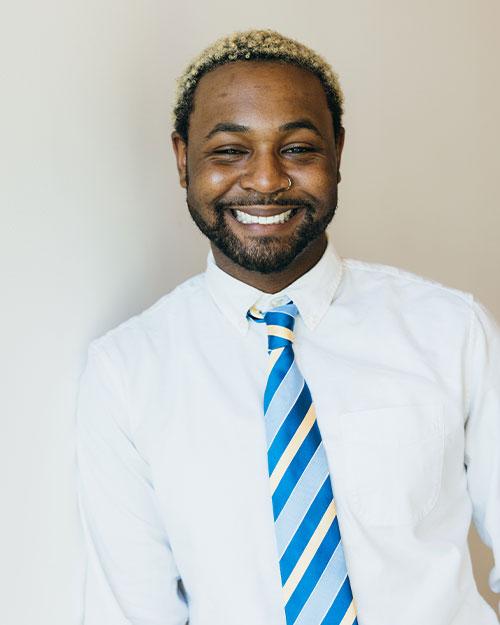
Akil Atkins
Pronouns: He/Him/His
Advisor: Sam Sommers, PhD
Area of study: Social Psychology
Background: Akil received a BA in Psychology, with a minor in computer science, from Bucknell University in 2022. At Bucknell University Akil studied Human-AI interaction, under the direction of Dr. Chris Dancy, specifically analyzing how humans treated AI agents based on how they were racialized.
Current research: Interested in examining different types of racism and primarily how these affect marginalized groups, and the reactions/perceptions of those who’re unaffected.
Future plans: Continue research, while being a mentor in some capacity to marginalized youth.

Sydney Bonauto
Pronouns: she/her
Advisor: Marcus Weera, PhD
Area of study: Neuroscience
Background: Sydney received a BA in Neuroscience from Bowdoin College in 2023. There she worked with Dr. Jennifer Honeycutt to assess the sex-specific effects of early life adversity in affective processing using rat ultrasonic vocalization playback.
Current research: Now, Sydney is a student in the Tufts School of Medicine Neuroscience Department in Dr. Marcus Weera’s lab. Her work focuses on translational and affective neuroscience by studying the neural factors driving the relationship between stressors and alcohol drinking in a rat model.

Olivia Brunke
Pronouns: she/her
Advisor: Marcus Weera, PhD
Area of study: Psychology, Neuroscience
Background: Olivia received a BS degree in Neuroscience from Tulane University in 2023. During her undergraduate studies, Olivia worked in the lab of Dr. Tiffany Wills (LSU Health) on projects that investigate the neurobiological consequences of adolescent alcohol exposure.
Current research: At Tufts, Olivia is a student in the Tufts Psychology Department in the Addiction Neuroscience Lab and works on projects related to the neurobiology of stress and alcohol interactions.
Future Plans: Contribute to the understanding and treatment of alcohol use disorder and its comorbidities.
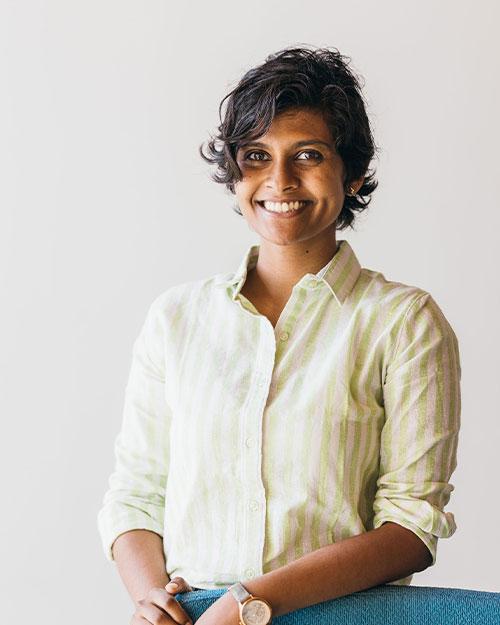
Vanalata Bulusu
Advisor: Dr. Stephanie Badde
Area of study: Multisensory Integration
Background: Vanalata graduated with a dual degree in Humanities and Computer Science.
Current research: I am interested in figuring out how the brain integrates information coming from multiple senses.
Future plans: Continue to contribute to knowledge.
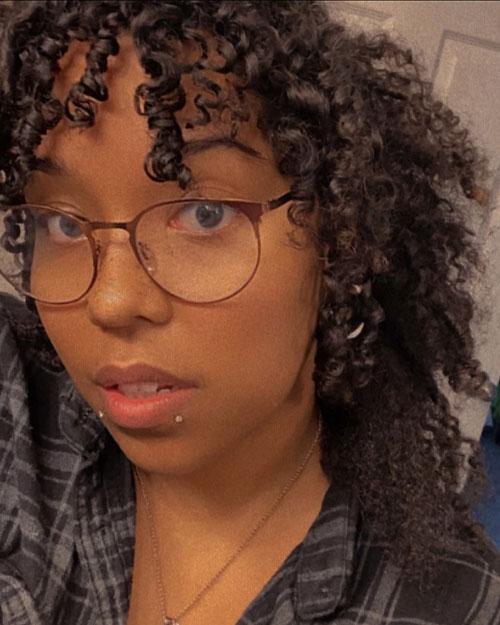
Monique Cathern
Advisor: Heather Urry, PhD
Area of study: Experimental Psychology
Background: Monique earned her B.A. in Psychology and Social Behavior from the University of California Irvine. She then joined Dr. Michelle Shiota in the Shiota Psychophysiology Laboratory for Affective Testing at ASU where she examined the influence of emotion on cognition and decided to pursue this interest further.
Current research: As an incoming PhD student at Tufts University, she intends to investigate the influence of emotion on cognitive processes such as attention and perception. Specifically, she's interested in examining the influence of stress on perception and communication in human-to-human interactions. With this focus, she hopes to optimize methods of emotion regulation and utilize cognitive resources to improve performance under stress.
Future plans: In addition to a career in research, I am developing my artistic skills in Surrealism. Coming soon to a gallery near you!
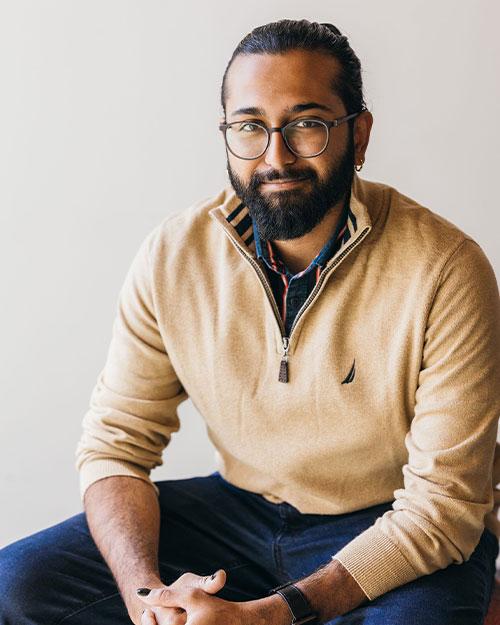
Himanshu Chaudhary
Advisors: Ayanna Thomas, PhD, & Elizabeth Race, PhD
Background: Himanshu earned his BA in Psychology from the University of California, Los Angeles. During his time at UCLA and working as a lab manager at UC Davis, he worked on a multitude of projects ranging from scaffolding of memory in older adults to modeling learning in the brain using fMRI. Here at Tufts, he aims to continue his study of memory and the brain in older adults by looking for ways to tackle the cognitive deficits and susceptibility to misinformation that comes with growing older as well as pursue his interest in the effects of technology on cognition to produce research that can be applied to day-to-day life.
Current research: Currently studying the effects of warning on the memory for eyewitness events and susceptibility to misinformation in older adults as well as the effects of stress and uncertainty on cognitive abilities in emergency responders.
Future plans: Continue researching memory and older adults but branch out into new methodologies such as AI and virtual reality to create more complicated paradigms with the goal of creating naturalistic studies in the lab.

Suliarys Contreras
Pronouns: she/her/hers
Advisor: Aerielle Allen, PhD
Area of study: Social Psychology
Background: Aries received her AA from Lehigh Carbon Community College in 2020, and her BA in Psychology from Bucknell University in 2022. After graduating from Bucknell University, she was a lab manager in Dr. Valerie Jones Taylor’s Stereotyping and Social Interactions Virtual Reality Lab at Rutgers University. For two years, she researched how Virtual Reality can be used as a tool to reduce bias in interracial interactions.
Current research: Aries is interested in understanding social stratification and examining how key social identities (e.g., race, gender, age, and socioeconomic class) lead to differences in intra- and intergroup contact, empathy, and equity. Specifically, she seeks to identify the underlying psychological processes in minoritized individuals' interaction with ingroup and outgroup members and their downstream consequences.
Future plans: To pursue a career in academia and to publish her research (although, publishing a cookbook one day might also be on the agenda).
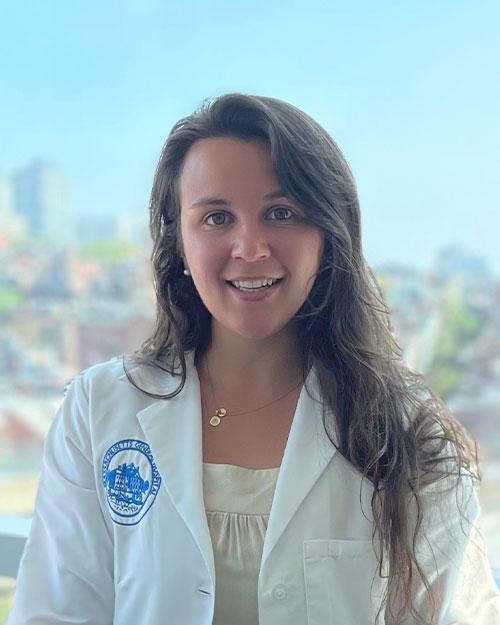
Julie A. DiCarlo
Advisor: Nathan Ward, PhD
Area of study: Cognitive Psychology, Neuroscience
Background: Julie’s background is primarily in Stroke Neurorehabilitation, studying motor systems neuroscience by using neuroimaging and neurotechnologies (e.g., non-invasive brain stimulation) in the Laboratory for Translational Neurorecovery at Massachusetts General Hospital.
Current research: Julie is interested in examining individual differences in attention control and the influence of attention on motor task performance. Julie hopes to use dual-task paradigms and neuroimaging techniques to examine the behavioral and neural mechanisms of these topics.
Future plans: Cognitive-motor clinical research and integration of (neuro)technologies!
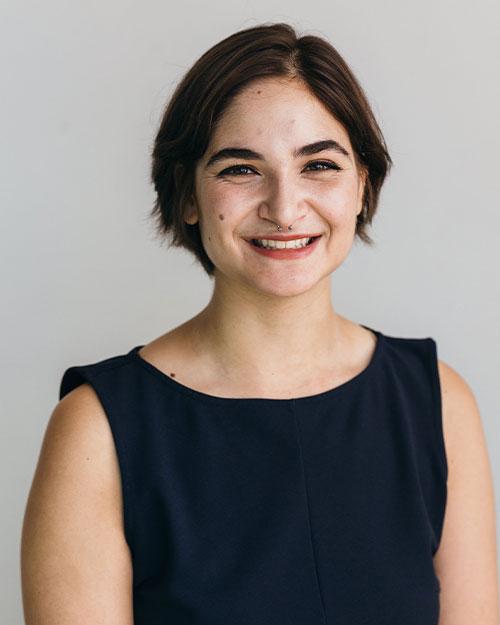
Crista Falk
Advisor: Stephanie Badde, PhD
Area of study: Cognitive Science
Background: Crista Falk graduated with a BS in Computation and Cognition and a minor in Music from the Massachusetts Institute of Technology in 2023. During this time, she spent 2 years in a Brain and Cognitive Sciences lab studying computational modeling of infant locomotion. She has previously worked as a software engineering intern and a machine learning researcher at Karlsruhe Institute of Technology.
Current research: Multisensory perception, computational modeling, the effects of cross-modal perturbation of somatosensation, proprioception, and audition.
Future plans: Crista would like to continue working in the perceptual space, either within academia as a professor or within tech working to improve accessibility through human computer interfaces.
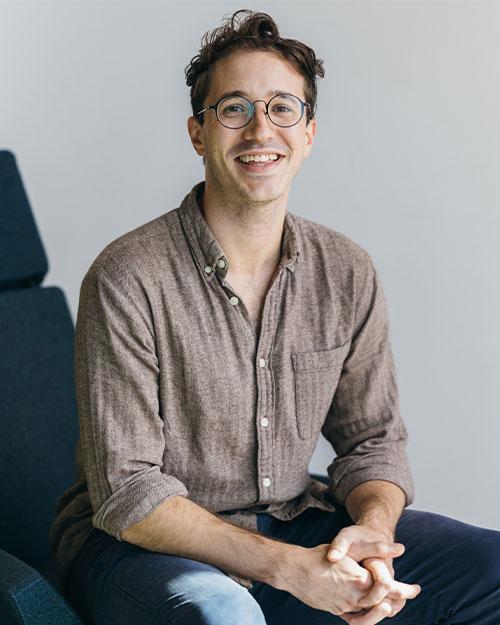
Thomas Allen Hansen
Advisor: Gina Kuperberg MD, PhD
Area of study: Cognitive science and Psycholinguistics
Background: Thomas received a BA in Psychology from the University of South Carolina. Here he gained experience as a research assistant in the Early Social Development and Intervention Lab with Dr. Jessica Bradshaw, working on early biomarkers for Autism Spectrum Disorder (ASD). He then received his MA in Psychology at Brandeis University. His research with Dr. Arthur Wingfield in the Memory & Cognition Lab investigated Cochlear Implant users’ ability to comprehend discourse-level texts using pupillometry.
Current research: Neural imaging of language processing (EEG, MEG), naturalistic language processing, discourse comprehension, predictive processing
Future plans: Learning more about MEG and fMRI, mentoring undergraduates/teaching, sleeping, publishing more papers

Gauri Harindranath
Pronouns: she/her/hers
Advisor: Paul Muentener, PhD
Background: Gauri graduated with a BS in Psychology, a minor in Mathematics, and a Specialization in Psychological Modeling from the University of Massachusetts, Amherst, in 2021. Her research in Dr. Andrew Cohen's cognitive lab at UMass, along with her work in development labs at Boston University and Harvard University, has shaped her current interests.
Current research: Cognitive development, scientific thinking and learning, causal learning
Future plans: Contribute to research about how children learn

Hannah Hart-Pomerantz
Advisor: Holly Taylor, PhD and Nathan Ward, PhD
Area of study: Cognitive Psychology
Background: Hannah graduated from the University of California, Santa Cruz with a BS in Cognitive Science in 2020. As an undergraduate, she worked as a research assistant in Dr. Nicolas Davidenko’s High Level Perception Lab. Following graduation, she spent a few years working as a senior research coordinator at the Center for Applied Brain and Cognitive Sciences at Tufts University. In this role, she had the opportunity to work on a variety of projects in collaboration with principal investigators from Tufts and the DEVCOM Soldier Center examining different ways to measure, predict, and enhance cognitive capabilities for individuals in high stakes environments.
Current research: Hannah is broadly interested in understanding how stress, cognitive load, and non-invasive neurostimulation impact cognition and decision making, and how this can be applied in real-world settings.
Future plans: Continue to conduct research that can be applied within real-world settings.
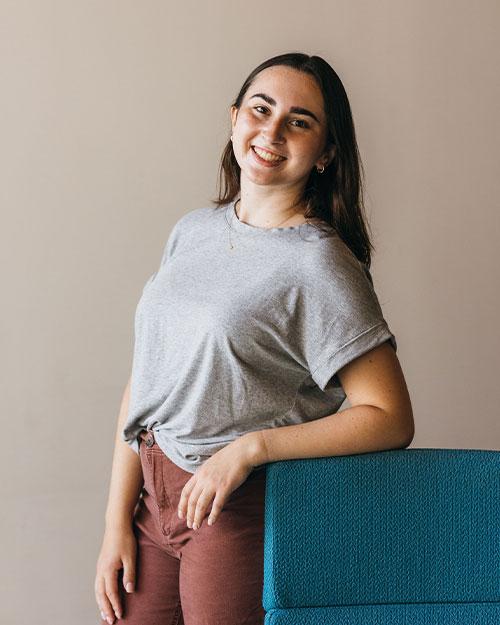
Madelyn Jungbluth
Advisor: Lisa Shin, PhD
Area of study: Clinical Neuroscience
Background: Madelyn graduated from the University of Michigan in 2023 with a BS in Neuroscience and German. While at Michigan, she was a research assistant in the Duval Lab studying learning and memory for threat and reward using methods such as functional magnetic resonance imaging (fMRI) and skin conductance response (SCR) in individuals with anxiety and stress disorders.
Current research: Madelyn is interested in studying how behavior and brain function during cognitive and emotional tasks is related to anxiety and stress disorder symptoms, specifically in individuals with PTSD.
Future plans: Learn new skills, contribute to meaningful research, and find time to learn new recipes, explore new running trails, and travel.

Sreelakshmi K
Advisor: Dr. Stephanie Badde
Area of study: Cognitive Science
Background: Sreelakshmi completed her BSc in Physics with a minor in Mathematics from the University of Delhi. She then pursued an MSc in Cognitive Science from the Indian Institute of Technology Gandhinagar, where she began her research on vibrotactile perception in the Touch Perception lab. Following her master’s, she continued in the lab as a project assistant, working on categorical learning in vibration perception.
Current research: Multisensory perception and neuroplasticity
Future plans: Continue research on perception and neuroplasticity

Ann Kochupurackal
Pronouns: she/her/hers
Advisor: Ariel Goldberg, PhD
Area of study: Cognitive psychology, Psycholinguistics
Background: Ann graduated with a BA in Linguistics from the Macaulay Honors College at Brooklyn College in 2019. Ann was an NSF-sponsored research fellow studying the effects of age, cognitive decline, and hearing impairment on bilingualism in Dr. Katrien Vermeire's lab.
Current research: Ann is interested in investigating how the mechanisms of language production – particularly in typed production – are monitored and regulated at every level of processing.
Future plans: Researching, teaching, and baking

Sydni M. Nadler
Pronouns: she/her
Advisor: Holly Taylor, PhD and Nathan Ward, PhD
Area of study: Applied Cognitive Science
Background: Sydni graduated with her BA from the George Washington University Honors Program in 2022, double majoring in Psychological and Brain Sciences (Concentration: Cognitive Neuroscience) and Criminal Justice. Sydni began her research career as a Luther Rice Undergraduate Research Fellow in the GW Visual Cognition Lab under Dr. Stephen Mitroff, where she studied visual attention in applied settings. Following graduation, Sydni served as a Junior Lecturer in the Department of Psychological and Brain Sciences at Johns Hopkins University.
Current research: Neuromodulation, multitasking, cognitive enhancement, individual differences.
Future plans: Conducting applied research on the intersection between emerging neurotechnology and cognition in an industry setting.

Megan Paterson
Advisor: Xandra Kredlow, PhD
Area of study: Psychology and Cognitive Science
Background: Megan graduated from Fairfield University with a degree in Psychology with a concentration in Behavioral Neuroscience. During her time there, she conducted behavioral research on awareness of implicit biases toward individuals with mental health disorders. Following graduation, she served as a Postgraduate Research Associate at Yale University, where she researched the effect of anxiety on decision-making. She also investigated differences in brain activity among individuals with different symptoms of PTSD using functional magnetic resonance imaging (fMRI) and magnetoencephalography (MEG).
Current research: She is interested in translational research investigating the mechanisms of autobiographical memory in anxiety-related disorders through the examination of language and neural processes.
Future plans: Continue learning and contributing to research while supporting undergraduate students and research assistants through mentorship in academic or lab settings.
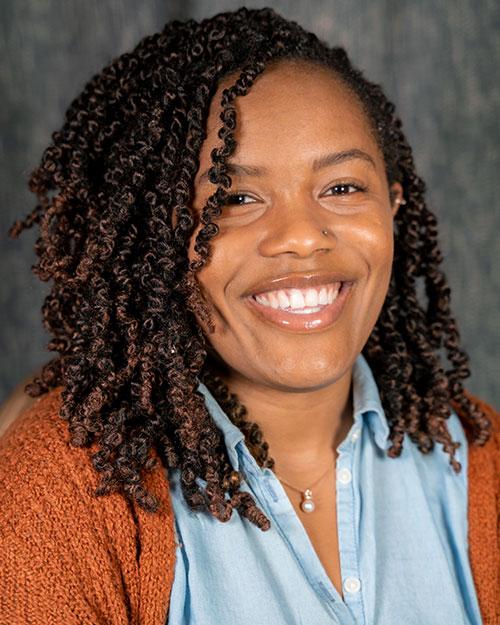
Keturah Ragland
Advisor: Sam Sommers, PhD
Area of study: Social Psychology
Background: Keturah received her BS in Neuroscience and Cognitive Science from the University of Arizona where she studied multisensory integration in non-human primates. She then studied for 2 years at the University of Delaware where she did research exploring the barriers and obstacles of women, and particularly women of color, in STEM.
Current research: She is interested in taking an intersectional approach to examine the relationship between various social identities as well as how having multiple stigmatized identities impacts individuals' perceptions and behaviors in various academic spaces.
Future plans: Whether in academic or non-academic spaces, Keturah aspires to have her work be an extension of her advocacy and social justice efforts to highlight the experiences of those who are often pushed to the margins.

Max Ramseyer
Advisor: Ayanna Thomas, PhD
Area of study: Cognitive Science
Background: Max Ramseyer earned an MEd from Harvard University, an MTS from Holy Cross Greek Orthodox School of Theology, and a Self-Designed BA from Duke University, with training across psychology, neuroscience, education, and theology. As a neuro-imaging research assistant at Mass General Brigham, his research examined how sense of purpose in life is associated with greater cognitive resilience in the preclinical stage of Alzheimer’s disease and how hedonic and eudaimonic wellbeing are differentially mapped onto the default-mode network. He also serves as an instructor of neuropsychology and statistics at Hellenic College and as a Teaching Fellow for Adult Development & the Immunity to Change courses at the Harvard Graduate School of Education.
Current research: At Tufts, Max is interested in the neurobiological substrates of metacognitive and autobiographical memory processes and their link to navigating uncertainty during adult developmental transformations.
Future plans: Continue to study how our mind and brain interact when our capacity to make meaning of our life experiences undergoes deep transformation.
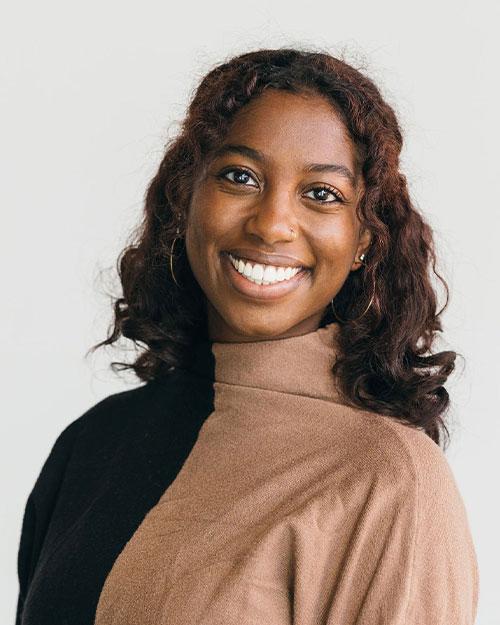
Isha Smith-Ramakrishnan
Advisor: Jessica Remedios, PhD
Area of study: Social Psychology
Background: Isha graduated with a BA in Psychology from Skidmore College in 2022. During her undergraduate career, she studied person perception, specifically focusing on non-White perceptions of dual-minority biracial individuals.
Current research: Isha is primarily interested in studying social perception, with a focus on Asian populations. Specifically, she studies how phenotypic cues influence racial- and gender-based bias, stigma, and stereotyping. Her current research evaluates differing perceptions of femininity across East and South Asian populations, and the downstream consequences of gendered stereotyping.
Future plans: Isha would like to continue conducting research and mentoring budding researchers, especially those of us who are underrepresented in psychology research settings. She also hopes to continue nurturing her passion for music and performance.

Kayla Sansevere
Pronouns: she/her
Advisor: Nathan Ward, PhD
Area of study: Applied Cognition
Background: Kayla’s research has garnered national recognition both as a graduate, notably as an Honorable Mention for the 2021 NSF GRFP, and as an undergraduate, notably as a 2019 Barry Goldwater Scholar. She earned a BA in Psychology with a minor in Spanish from Arcadia University in 2020. Kayla actively seeks opportunities for advanced training in statistics and methodology and enjoys applying these skills to elevate her research.
Current research: The effectiveness and ethical considerations of neurotechnology to influence cognition and behavior in complex everyday situations, such as driving a car or piloting an aircraft.
Future plans: Continue exploring consulting opportunities and national grant review services. Explore new interests and hobbies while nurturing current ones. Grow as a peer and mentor.
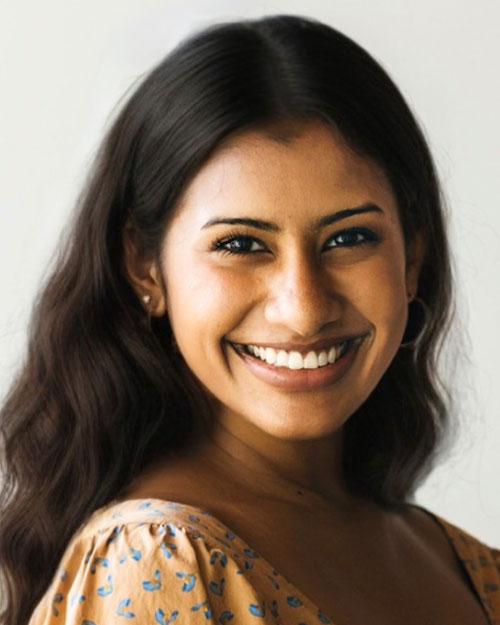
Apoorva Vallampati
Advisor: Gina Kuperberg, PhD
Area of study: Cognitive neuroscience, linguistics, psychiatric disorders
Background: Apoorva earned her BS in Neuroscience from The Ohio State University in 2020. Her undergraduate thesis work at The Cognitive Development Lab (PI: Dr. Vladimir Sloutsky) proposed that new words could be added to the semantic network by mere exposure to two fundamental statistical regularities that naturally occur in language, and that this sensitivity only increases with age. After leaving school, Apoorva pursued an analytics career in the banking industry, applying her understanding of cognition and semantic networks to help build AI/ML and behavioral analysis tools to detect fraud.
Current research: Investigating how neurolinguistic processing changes in psychiatric disorders using an integrative approach that combines brain imaging techniques, predictable neural measures associated with semantic context, and large language models.
Future plans: Research, writing, & teaching

Henrique Vieira
Advisor: Marcus Weera, PhD
Area of study: Behavioral Neuroscience
Background: Henrique received a BS in Neuroscience and a BS in Psychology from Arizona State University in 2025. During his time as an undergraduate, he studied the role of the cerebellum in neurodevelopmental disorders such as autism spectrum disorder (ASD). His thesis work explored the role of the norepinephrine system and Purkinje cells in mediating cognitive inflexibility and repetitive behaviors, hallmark symptoms of ASD.
Current research: At Tufts, Henrique’s research is focused on the neurocircuitry of alcohol-heightened aggression-seeking. He is interested in uncovering why drinking alcohol can exacerbate the motivation to engage in aggressive encounters.
Future plans: Henrique plans to advance the alcohol addiction field to assist those with a lower socioeconomic status (SES), which can improve society on a large scale. Research suggests that those with lower SES experience greater alcohol-related detrimental consequences from misuse.
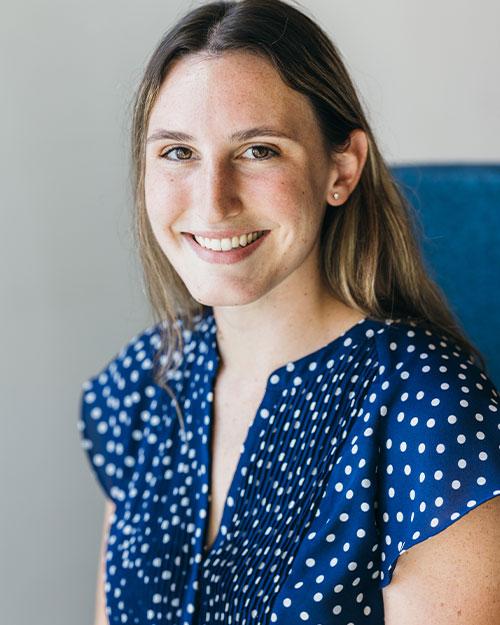
Meghan Whalen
Advisor: Xandra Kredlow, PhD
Area of study: Experimental Psychology
Background: Meghan earned a BS in biology and minor in psychology from the University of Massachusetts Amherst. During her undergraduate years, she worked in a developmental sleep lab, studying the effects of napping on declarative and motor memory in preschool children. After graduating, Meghan worked as a research assistant for two years in clinical trials for neuromodulation of chronic pain conditions at Spaulding Rehabilitation Hospital. Meghan previously worked at the Harvard T.H. Chan School of Public Health teaching medical students and doctors the principles of clinical research.
Current research: Translational research on anxiety, emotion, and fear memory processes.
Future plans: Continue conducting research that can be translated into a clinical setting.
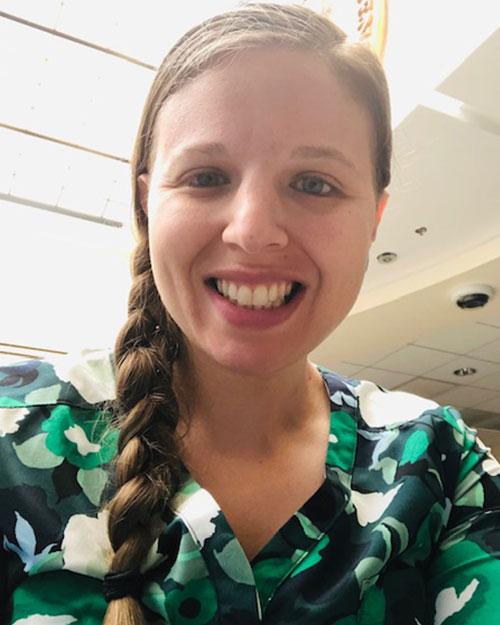
Kimberly Young
Advisor: Ariel Goldberg, PhD
Background: Kimberly graduated from Salem State University with a BFA in 2009, and then worked in the web industry for close to ten years. In 2019 Kimberly received a Master's in linguistics from UNH.
Current research: The production of words both in spoken and written language; also interested in ASL and the semantic relationship between words.
Future plans: Continuing research
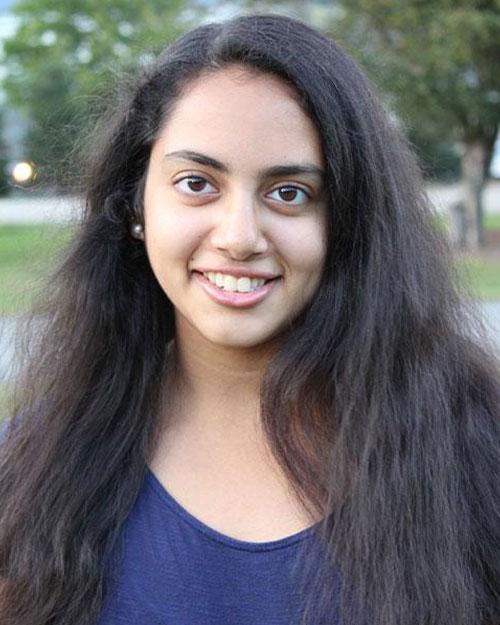
Jailekha Zutshi
Pronouns: she/her/hers
Advisor: Jessica Remedios, PhD
Area of study: Social Psychology, Metascience
Background: Jailekha graduated with a double major in Psychology and Economics from Colgate University in 2021, where she studied how people attribute minds to a range of characters. She worked at her alma mater for a year afterwards while remotely volunteering at the Tufts University Social Cognition Lab.
Current research: Broadly, Jailekha is interested in how we think about people and methods that lie outside the norm. Her primary research examines the link between mind perception and dehumanization. A reflexive mixed methods researcher, she also researches the consequences of mainstream research and teaching practices on people's beliefs about generalizability and epistemology within psychology.
Future plans: Becoming a full-time faculty member, teaching psychology and statistics in an accessible (and fun!) way, spending time with loved ones, and continuing to do ballet and write fiction!